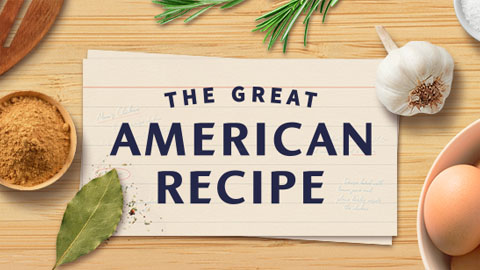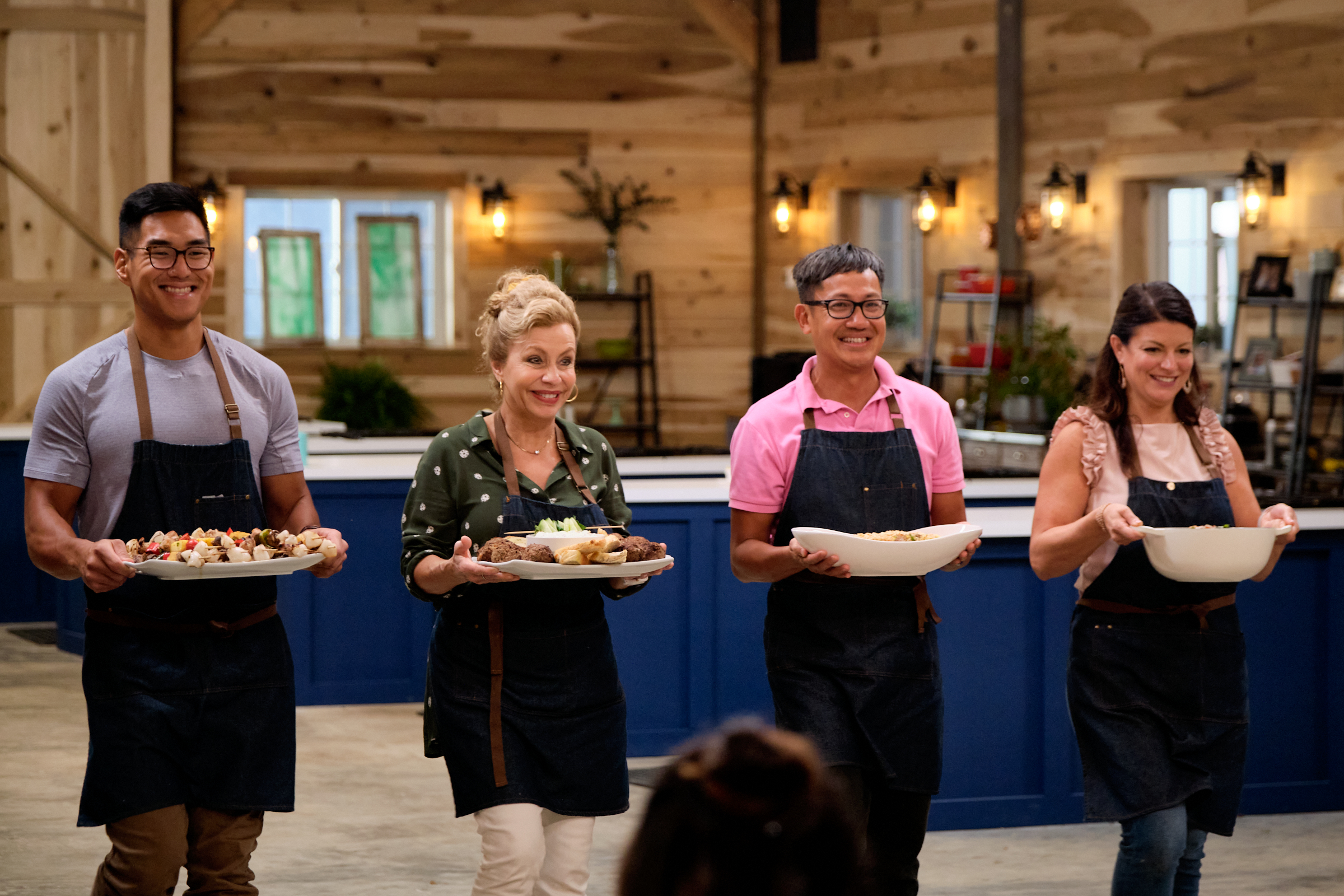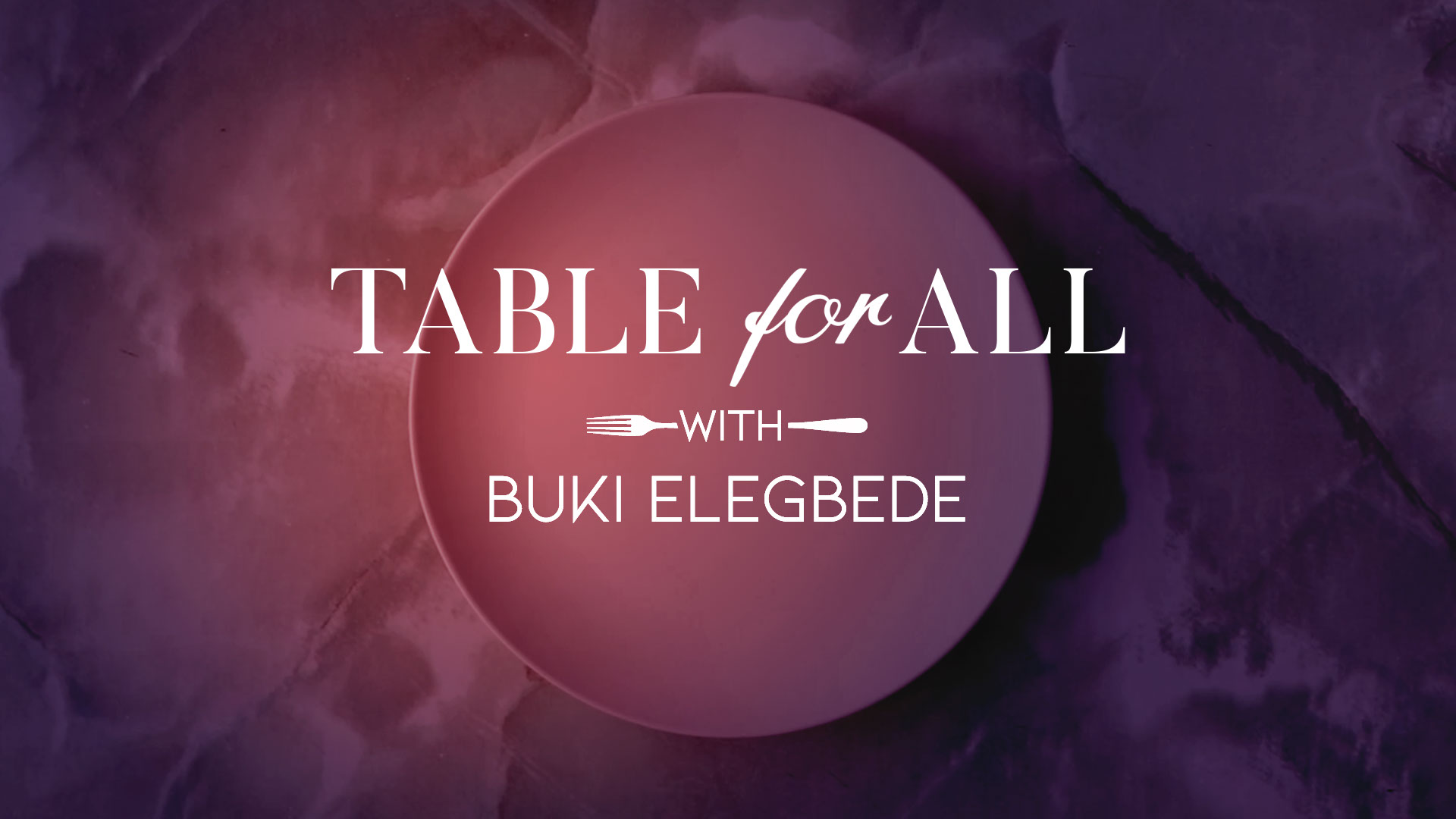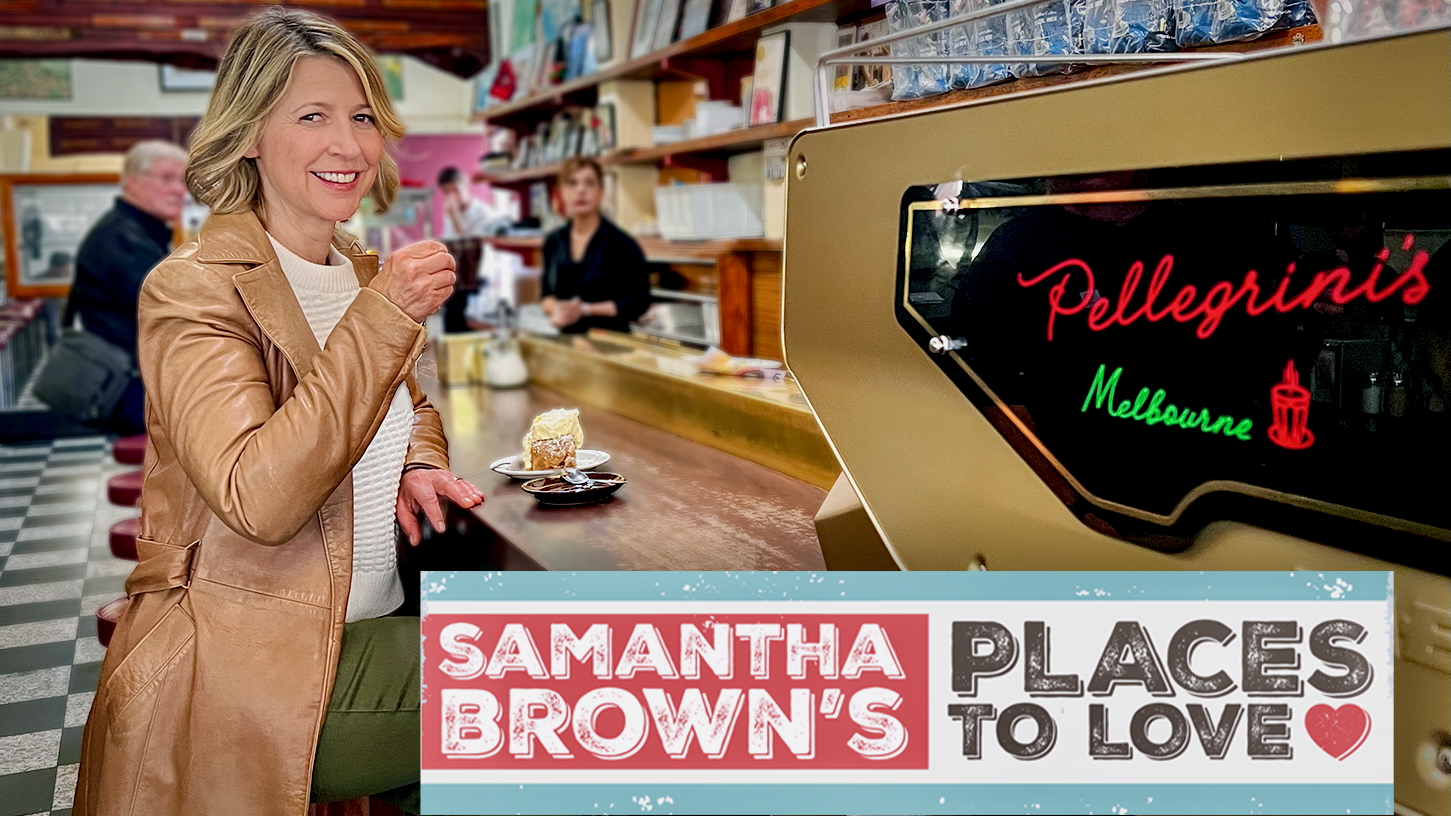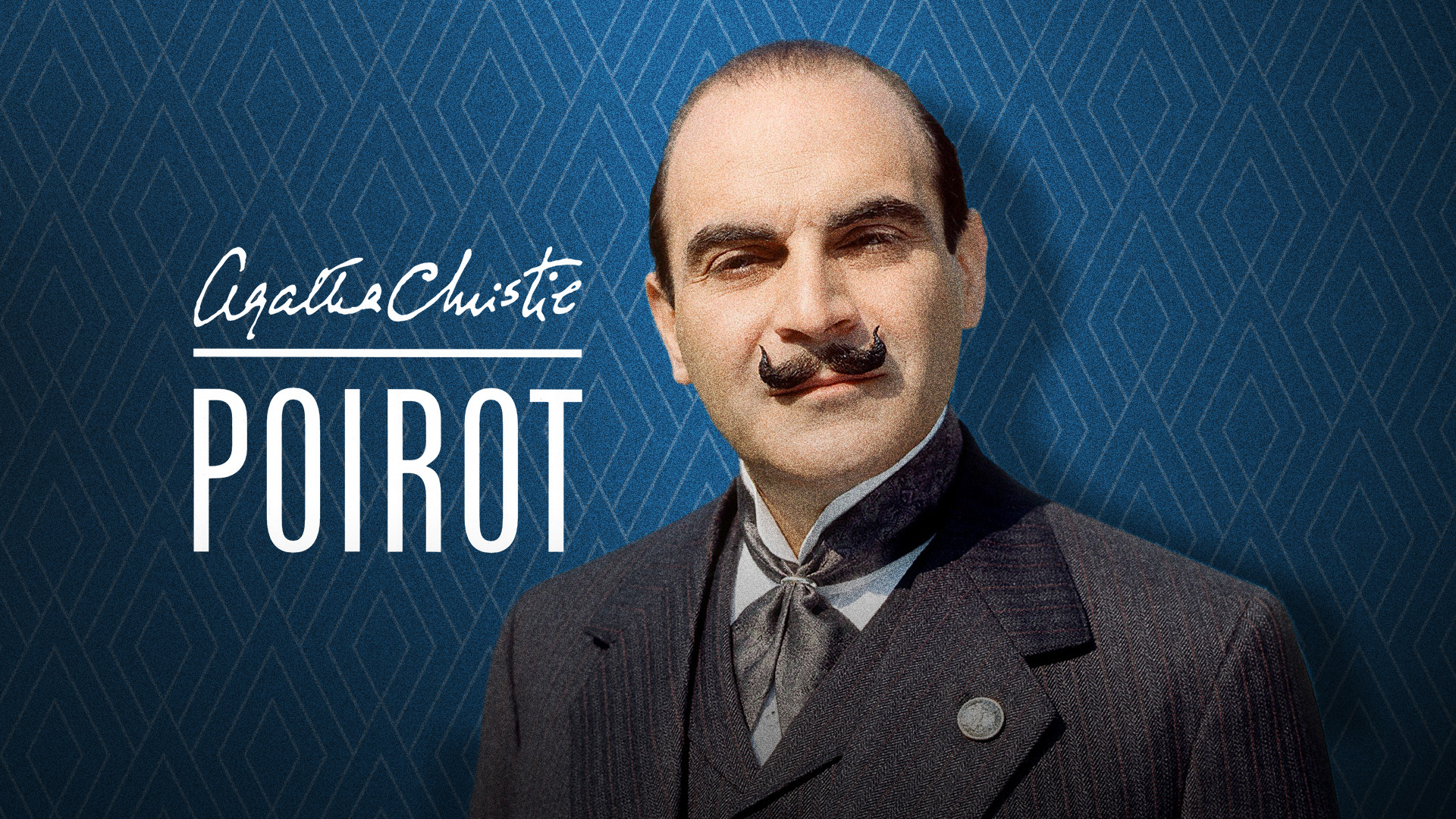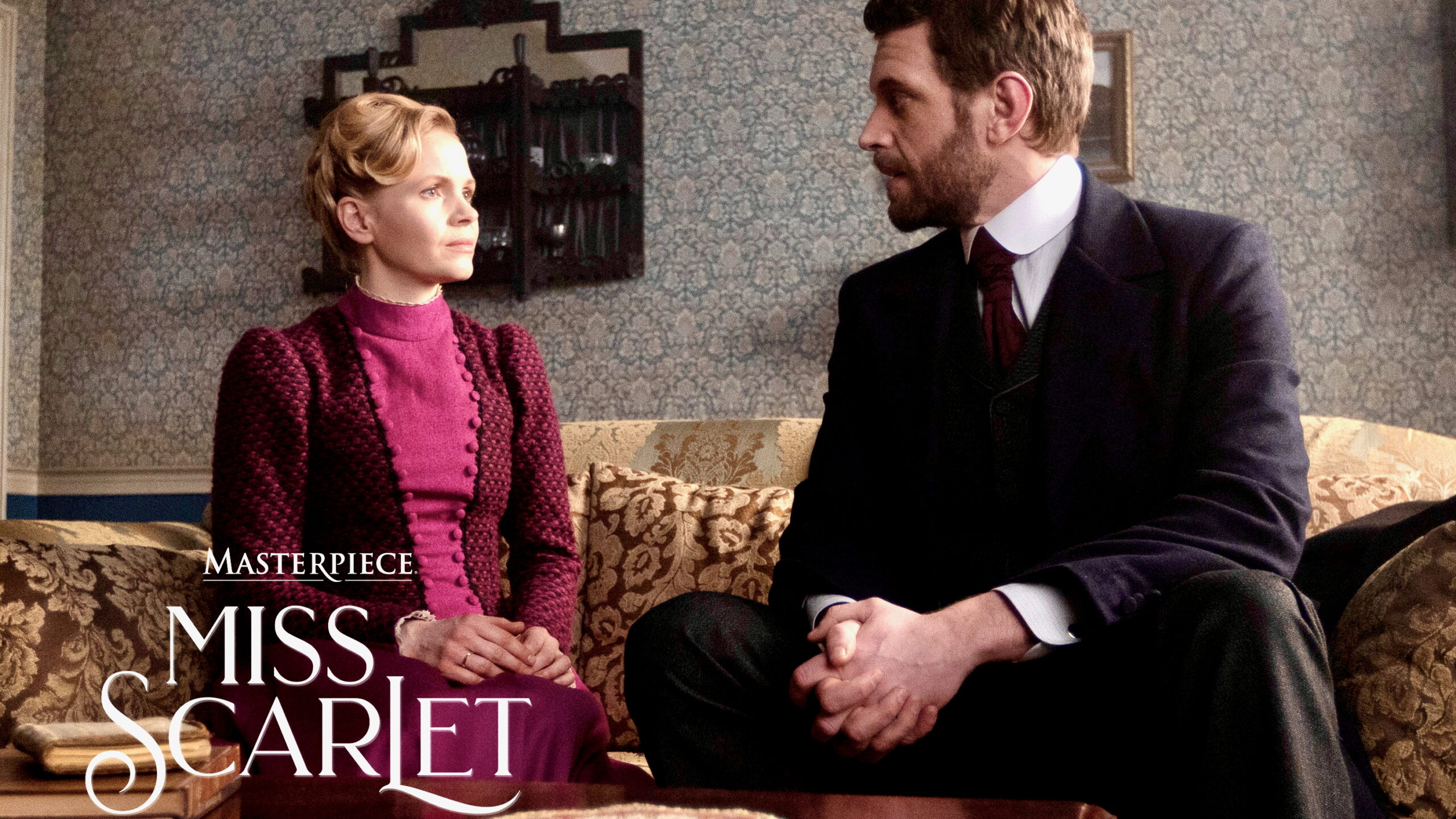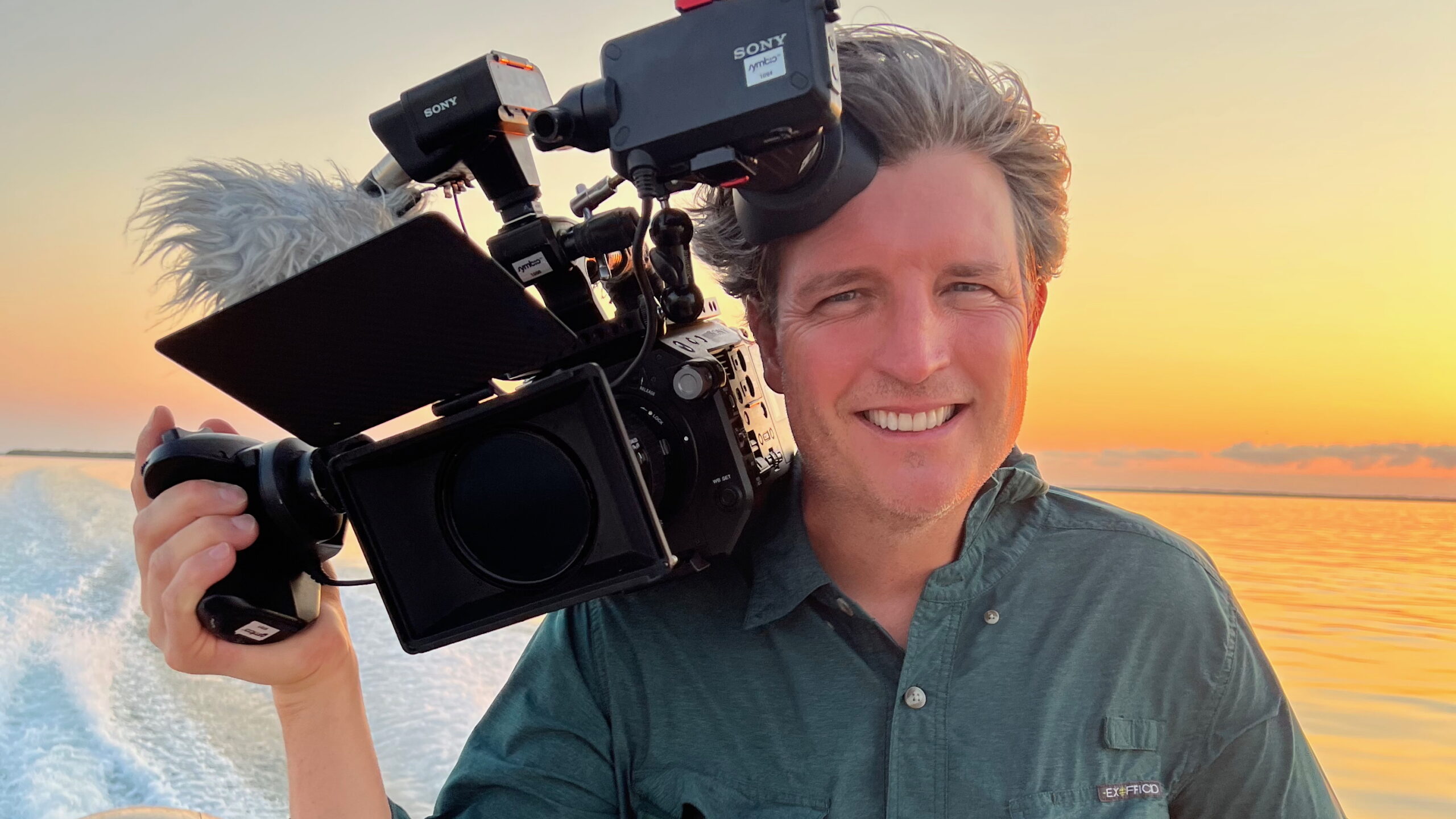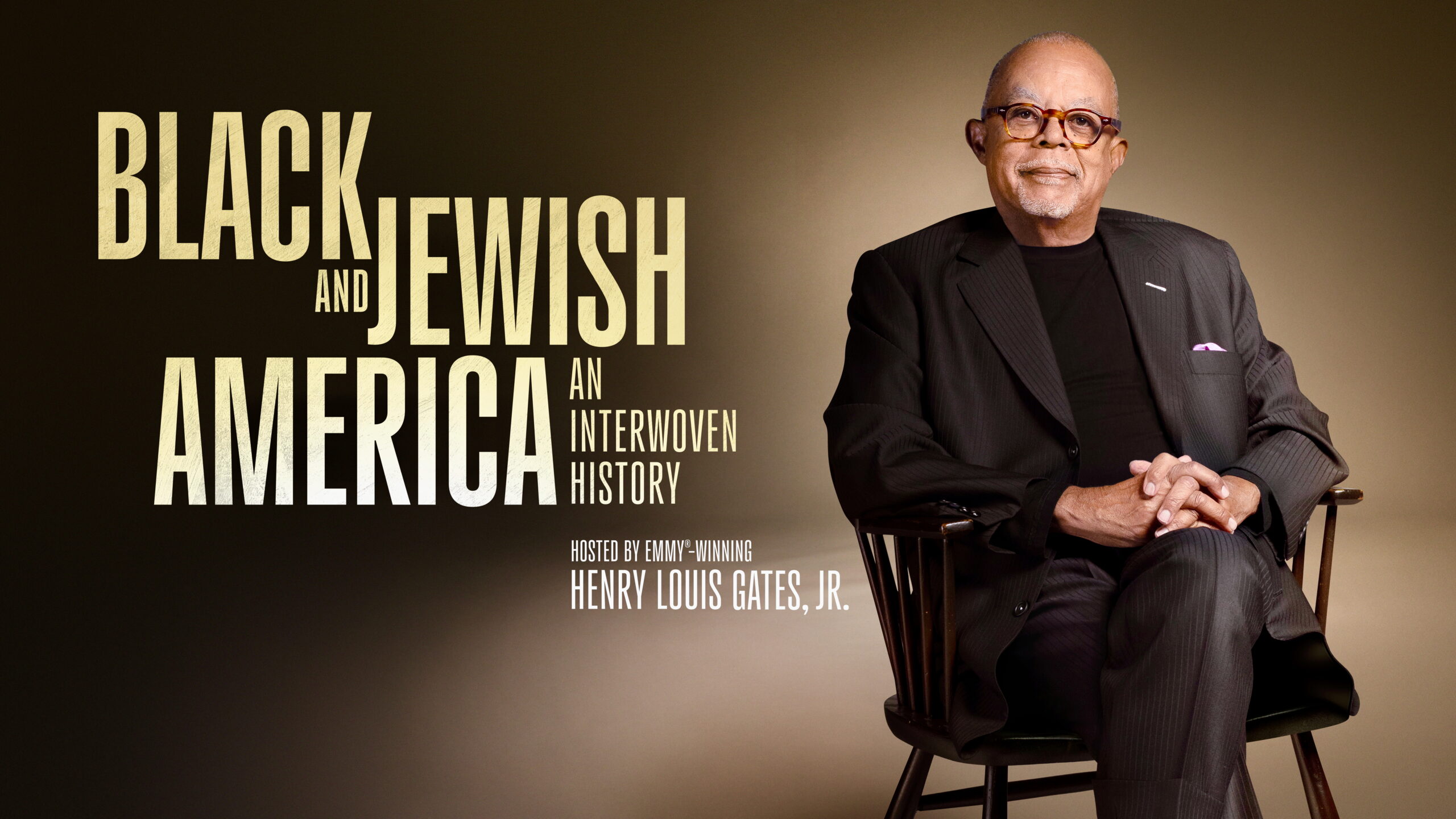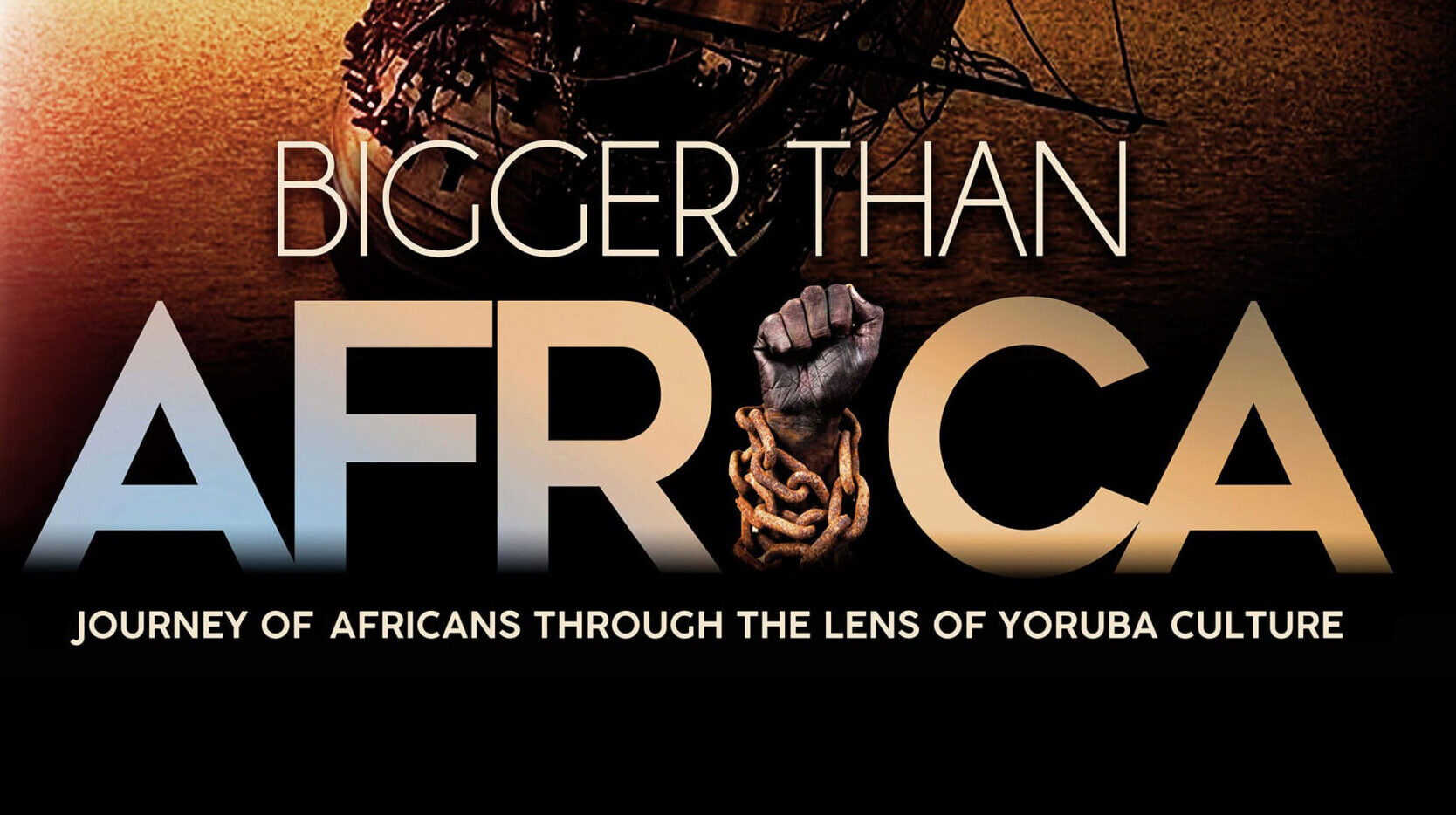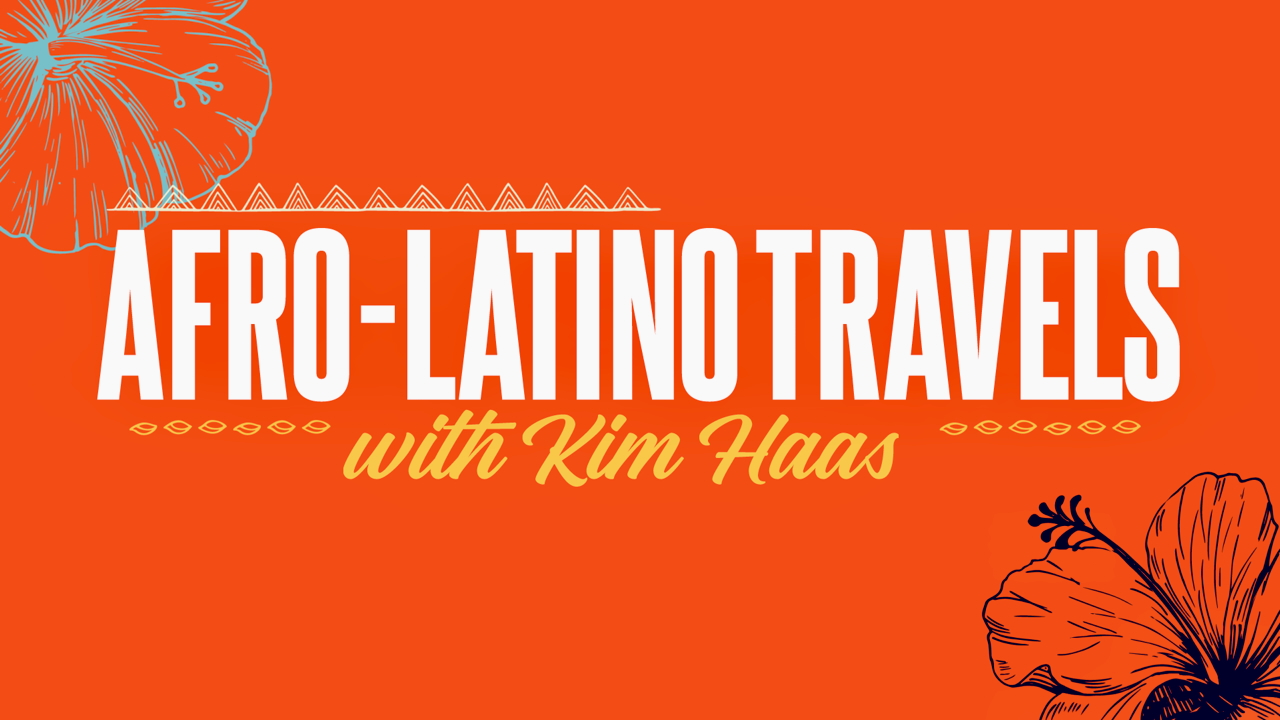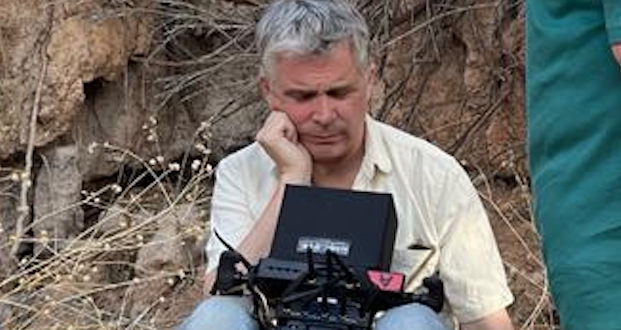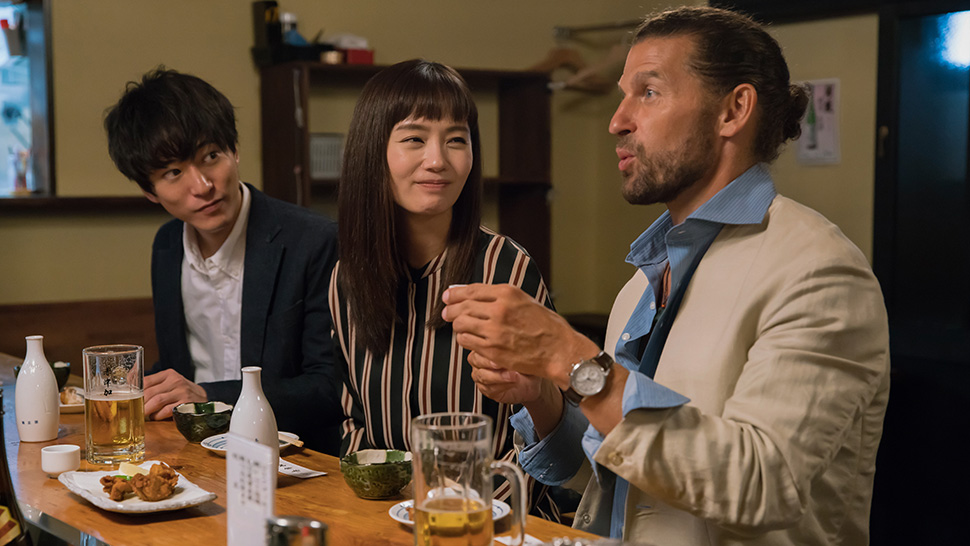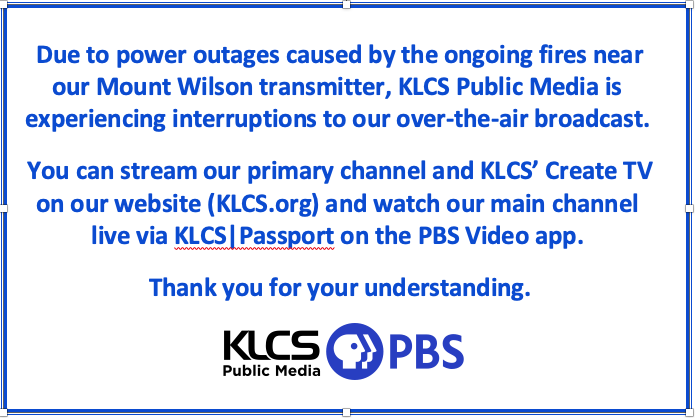Join us on a delectable journey with PBS’ The Great American Recipe. If you’ve ever found yourself enchanted by the warmth and camaraderie of Great British Bake Off and wondered what the natural evolution of such a show would be, look no further. The Great American Recipe is not just a culinary experience; it’s a celebration of America’s rich tapestry of diversity, expertly woven together by the talented team at PBS. It’s a show where heartwarming connections are forged between hosts, judges, and contestants; transcending cultural boundaries and uniting us all on a shared human journey. Through each mouthwatering dish, relatable tales of love, loss, and cherished memories come to life. In an exclusive interview with Executive Producers Jilly Pearce and Alyssa Hastrich—we delve into the captivating world of The Great American Recipe, building excitement and whetting our appetite for Season Three.
Alyssa, Jilly, how did The Great American Recipe come about? And what was your aim with the show?
Jilly: We’re now in Season Three and Season One was developed over a really long period of time due to Covid, and actually changed quite significantly during the development period. We worked with Zara (Frankel) at PBS on shaping the show during the development process, and I think perhaps, because it was such a long time in development, it grew into something quite special because of the times what was happening America while we were developing the show. Essentially, it went from being a straight forward cooking competition to something that I think has so much more meaning. And the layers that we brought to the development were essentially bringing your family story to the competition and everything that encompasses – your heritage, your culture and how that melting pot makes up American food stories.
I love straight-forward cooking shows, but my favorite competitive cooking show was Great British Bake Off, and this, to me, is a natural progression of that; I always thought it would be nice to have meals in addition to desserts. To me, that was always the kindest of the cooking competition shows; when I watched The Great American Recipe, it felt like that.
Jilly: I’m British and I’ve been a huge fan of that show for a long time and it was hugely successful here, the British version and the American version now, and we definitely loved the tone of the show. Alyssa can speak about this with the cast, but we loved the camaraderie.
Alyssa: Coming into something like this is completely different, because it’s more a celebration of food and stories, versus a cutthroat competition, which a lot of these shows are framed as. This allows us to have the ability to tell [the contestant’s] story through the lens that they want, versus, maybe, this reality TV competition show lens. They really get to do what they do best, and they’re also home cooks. A lot of them approach food completely differently from a MasterChef, Top Chef type show – where people are a little bit more pro-level. That being said, they really do get to show off the best of what their cuisine represents; everything that tells us about their story – where they’re from regionally, their heritage, their culture, their community.
So much more gets to go into it because we give them a little bit more license to do that. On a cooking show where there’s a timer running constantly, they are thinking more about execution and less about the celebration of that food. It’s really nice, and they get to come in prepped and prepared so they feel they can do their best. Most of them have never been on TV, have never aspired to be on TV, because it’s just not something home cooks have the opportunity to do; and, they’ve never had their food critically tasted other than by friends and family. So, it is really interesting to see professional chefs taste their food. They get a lot of feedback and take away, even though it may be a little bit more delicate than other shows, but they get so much from the judges.
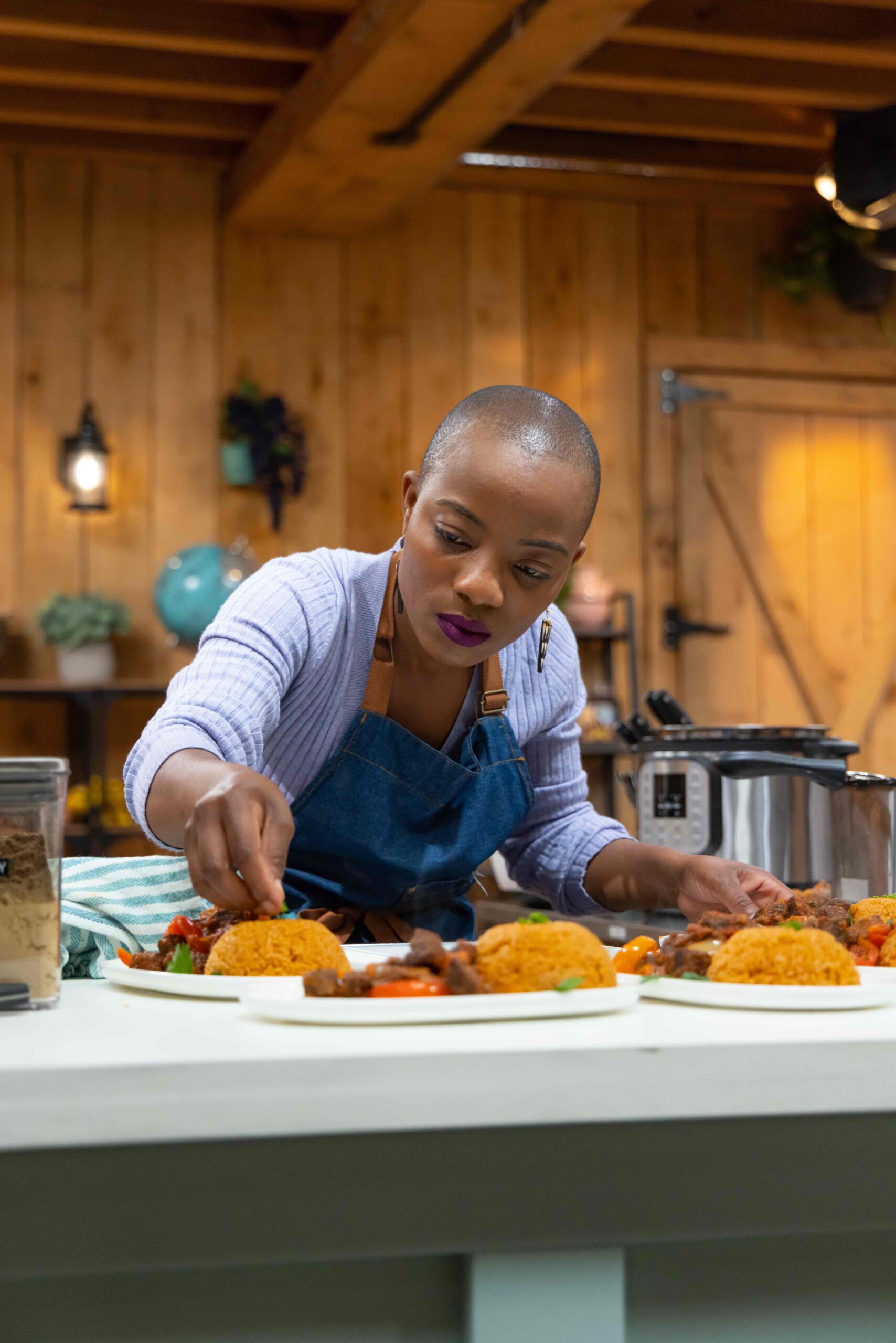
I love how this show allows people space to include their backgrounds in their food and lets the viewer go into their stories as we see their food; I don’t think any other show has that theme.
Alyssa: Yeah, that framework is weaved-in intentionally to make sure that they get to really say “This is why I’m making this dish.” And some of the dishes are very home style, it’s not something you might necessarily order on a menu in a restaurant. It’s something where you would sit down at somebody’s dinner table in a part of the country where maybe you’ve never been to and really get to experience the food and the story behind it.; every season we have so many great contestants and dishes that come out.
I love how the hosts and contestants embrace the world’s diversity, like with what you were saying Jilly. Was that a conscious decision?
Jilly: Some of the conscious decisions from the beginning were, completely, that this should be a reflection of everything that makes up great American food. And we love the title because it turns their preconceptions on their heads and the idea is that we’re really hammering home that this is great American food and that’s always the intention. During the development that was a time when, and unfortunately I don’t think we’ve evolved much from here, it felt like things were very divided in America; and actually, this message and the warmth that’s at the heart of this show, and the camaraderie and the sharing, and the telling of stories, and the heritage that’s what we’re bringing. They were sort of in answer to what was happening at the time of development and also, unfortunately, as we’ve progressed through each season. We’re trying to explore and express something really positive about that melting pot of American culture and how that connects with food and our personal stories and histories. So, that was always the intention, very much.
For Season One, for example, you would never typically see two Asians on the same contest show. How did you go about casting this new show, since people didn’t know about it yet?
Jilly: Season One was a normal casting process, but we were looking very specifically for home cooks from lots of different regions of the country; specifically looking for people who had interesting stories to tell through their recipes. We’re quite sensitive to not just trying to check boxes, what we’re doing is looking at what’s popular in America and Asian food is incredibly popular in America. The fact that there might be two Asian contestants making Asian food, that just represents the fact that we found two great people with great stories and great recipes, who were part of the mix. And as that has evolved across the series, what we have done is, we’ve tried to represent as many cultures, as many regions as we possibly can as we keep going through this brilliant competition.
Alyssa: In Season One we had Korean and Vietnamese. There’s a lot of similarities, but there’s a lot of differences in how they approach Asian cuisine. It was really interesting to see them. Sometimes contestants will do same and similar dishes, which creatively we like to see once in a while – to see apples to apples on dishes, how you approach something from your lens and how I approach something else. So, it is really interesting and we like to see that, and it makes it harder for the judging, because (laughs) there’s always a dish that might be a little bit better for them. But, it is really interesting to see people approach similar cuisines from their point of view.
Jilly: And without getting granular, I think when you do have those similar dishes or dishes that are from a similar culture, what’s amazing is, because these are often recipes that have been passed down generation to generation to generation, there are specific things that are done differently family to family; people are passionate about that in a brilliant way. And equally, our judges are always learning on our show, which is one of the things I love about the competition. In every single season, our judges, who are some of the country’s best chefs, will say that they’ve never heard of that ingredient, or they’ve never thought to use it that way, or they’ve never thought of that technique, or they’ve never heard how to make a specific thing in a specific way like this, and that’s because we’re tapping into really old techniques and ingredients and evolution of recipes, which is gorgeous, I think.
How has the show been received?
Jilly: Our take on it, to us, it’s one of the best shows in cooking and same with PBS, but I think the audience has been incredibly warm. It’s one of PBS’ most successful shows. It was, I think, a leap for them to do a cooking competition, and it’s why we spent so much time crafting the purpose of the show, the tone of the show. Those things were incredibly important for PBS, because they’re different to other networks in their messaging. I think we’ve really managed to craft a show that their audience really appreciates and we’ve found that as the seasons go one, it’s easier and easier to cast because people love the show, and they only have to watch it to see the type of experience they’re about to have. Which is only a beneficial experience, it’s a positive, warm experience for everyone who takes part.
Do you have a favorite moment or food on the show?
Alyssa: Season One we had a beautiful story of one of our contestants who made spring rolls which his mother would make as a “Thank you” to the families that took them in when they emigrated here; It’s just such an emotional story. In essence, it’s just a spring roll but it’s not just a spring roll, it’s delicious, but it’s not that elevated, it’s a pretty simple straightforward dish – but it’s the story behind it, the meaning behind it, why they would make it. It is labor intensive, his mother would go shopping for the ingredients when they didn’t have much, this was her gesture saying ‘Thank You.” Something like that is so meaningful; that story was super emotional for that contestant, in that moment, to be able to share with the judges. This is much more than just a recipe in a dish, this was a gesture of appreciation. We get to see lots of those types of stories, which is really, really beautiful to be able to tell those stories.
Jilly: I think it’s quite a unusual cooking completion in that quite often in the control room, we’ll all be in tears (laughs), as we’re watching the episodes and we’re in the edit process. There will be certain episodes, or certain challenge themes, that spark such emotion from people because they’re bringing these amazing connected family stories to us; they’re sharing something, they’re being very vulnerable emotionally, at the same time they’re sharing something that’s so precious to them and their family. It’s really not usual to have everybody in the control room in tears during a shoot, but that’s what happens on this show and equally, there’s a lot of laughter. Some of my best moments are, obviously there’s times where it’s very emotional, when you feel like you’re doing something special because we’re all sharing something important between us; but, equally, there are times when I see the contestants joking with each other, or tasting each other’s food, or helping each other out, or teasing with each other, and over the course of each season, every season, you get the sense that this group of people will build a friendship that’s going to go beyond the competition. And again, those are the moments for me where I feel like we’re doing something good.
What was the path to getting this show on PBS? It is unusual to see a commercial production company partnering with a PBS station.
It was long because of Covid, but it was quite straight forward. There was a headline idea they liked and we went through a very normal development process with them over a period of time and I think there was just a really strong belief in the idea from PBS. I think as the development evolved, it was so right for the time in terms of the message that the show delivers and how that intersects with the message that PBS delivers; it always felt like a very easy process because we all had the same intention for the show.
Everyone I talk to on these shows, mentions that it is difficult to produce a show without a sponsor. Was that hard for this show as well?
It’s more of a question for Zara, our PBS exec, but she works very hard to bring the funding model together to makes the show possible and we have an amazing partner in VPM (Virginia Public Media) who’ve been on board for each season so far, including Season Three. I think because the show has been successful, that has given them the opportunity to keep bringing it back, which obviously we’re really grateful for.
What’s your average day now, since you’re not on the road with the show?
Jilly: Alyssa and I have very different roles, Alyssa is very much on the show right now.
Alyssa: We’re in post-production, we’re in the thick of it. Our editors start Monday for our first episode. So, were in the process of getting the show together for PBS.
Jilly: Post goes for on a number of months. We think Season Three will air in June. That’s been the cycle for Season One and Two, so if it follows that cycle, it will air in June. Alyssa is completely across the show. We’ve both been involved in each series of the show. I run Objective, which is the production company that makes the show. We make a number of shows, so my day is much less involved in Great American Recipe Show than Alyssa is, but Alyssa’s been on-board in various roles and she was our head of Current for a long time, and she oversaw the project. So she’s really seen the full evolution of the seasons and she knows the show inside-out and back-to-front and is as connected to it, as we all are at Objective, and really has helped shaped the voice and the tone; and each season just keeps getting better. We were really excited to be on set this season because it’s going to be the best season yet, and we were excited by the recipes. We were excited by some of the evolution that’s happening in the show, where we’re not allowed to talk about, but which you’ll see. We’re staying true to the format, but there will be some shifts, some changes to freshen it up and Alyssa’s really seen the show evolve.
What’s your favorite part of the job? Is it the food, putting together the contestants, or coming up with challenges?
Alyssa: For me, it really is to see these moments of discovery. There’s a lot of dishes I had never heard of, and I’ve seen a lot of cooking competitions happen. It’s always moments in pre-production where we’re like, “This is going to be interesting, we’ve never had the privilege of telling a story of this dish from this point of view,” and then on set seeing the other contestants and the other judges connect with food that they don’t know anything about. You’d think a professional chef would have known about every ingredient across the globe, but they don’t. And it’s really interesting to see the different techniques, the different ingredients through different people’s experiences and really enjoy it. So it’s nice when the home cooks get to introduce other cooks and the chefs to new things because, it is that moment of connection. Like when you sit down at somebody’s dinner table and they introduce you to something for the first time, we get to experience it every single day. So, it is really, really exciting to see food in that way, versus a show that ‘s just gamey for food content to add a wild ingredient that nobody’s ever actually cooked with. These people actually cook with this on a daily basis, so it is really interesting to see some of those new dishes that probably have never been seen a cooking competition before; that makes it really exciting for us in the control room when we get to watch it.
So far everyone’s had a Julia Child story, or that she was an influence. Do either of you have a Julia Child story?
Alyssa: Growing up it was like something that everybody watched or experienced on TV and she’s just like this icon of food. Whether doing an impression of her, I have friends that work on the show Chopped, and the iconic photo of her with all the producers on the floor, handing the food, they re-created it and posted it the other day. I’m like, “Oh, that’s really special,” because she’s such an icon of food and cooking and how she approached food in a very relatable way; I think has made an impact on all of us. Again, she’s just such a legend.
Do either of you ever just pinch yourself because you get to do this for a living and follow in those footsteps, of educating people about food, on PBS?
Alyssa: The funny thing is, I’ve been doing this for however many years, and certain shows, people in my family or my friends, “What are you working on? Oh, ok another cooking competition.” This is actually one show that my nine-year-old nephew and my 60-year-old parents all watch. And they watch it interest (laughs) and they follow along and I get texts from my parents being like, “Oh my God, I can’t believe…” They’re actually watching it engaged. And they really enjoying it. A lot of shows are for a certain audience, this show resonates for young and older people, different families. It’s really interesting because it’s a show that you might not have heard about, but once you’ve discovered, you’re like, “Oh, I’m really interested and engaged.” It’s both emotional and entertaining, it’s got all the nuances of something that you want to watch, but it’s so interesting. If my parents watch it, it must be really good. And then across the board, all of our crew, all of our parents watch it. [Something] about this show, the generational connection to our parents and our grandparents’ audience, it really is interesting.
And it’s about family and/or friends, and memories and experiences with loved ones.
Alyssa: Yup, and then even in the edit, we show photos and all of that connects people to a time frame in their life, a memory, their dinner table, their holiday meal. Something about it really resonates with people that we always find so interesting, for a show that doesn’t have gimmicks and games and plot twists and all of these things you see on other shows. It doesn’t need it; it is really interesting, and special.
Jilly: I think it’s something that’s evolved over the course of the seasons, as well as there’s something about capturing these recipes and remembering these stories. And some of the more emotional moments are – maybe someone has a parent with dementia, and they’re desperately trying to keep creating those dishes as a way to hold on to that recipe, and that connection, and that thing that has been passed down generation to generation. It’s incredibly meaningful and moving. I think the range of emotions we explore in this show is something that makes it really unique. As Alyssa says, “It’s funny, it’s entertaining, there are stakes,” because the stakes for the people in our competition are, they’re representing their entire family, and these memories, and sometimes their culture. [They are] bringing to us stories that we might never have heard. So there’s a lot at stake, but there’s total warmth at the center of it.
That’s how I feel about the show, that’s why it also reminds me of the Great British Bake Off; I feel warmth about that show and this show. There aren’t other shows that make me feel that way. The warmth is the important part that you can’t fabricate.
Jilly: Yeah, and when you think about those pinch-yourself moments, being able to work one of those shows is a privilege.
Lastly, in L.A. do you have a favorite place to eat at?
Jilly: if we’re talking like, obviously what Great American Recipe is about, the place that I go the most with my family, is a little place called Pann’s Dinner and it’s in my opinion the best diner in L.A., I love it.
It’s cute.
So cute, and it’s the place we go as a family on a Sunday. And that is one of my favorite places in L.A. because it’s the place I go with my kids and my family. We’re becoming regulars I think and it’s great food, really amazing atmosphere, it feels like there’s history there.
Visit our klcs.org, to find out when The Great American Recipe, Season Three will air. All season are available now on KLCS|Passport. Learn more about The Great American Recipe and get the latest:, or follow PBS on social media: Instagram, Facebook, Threads, X ,on Pinterest

